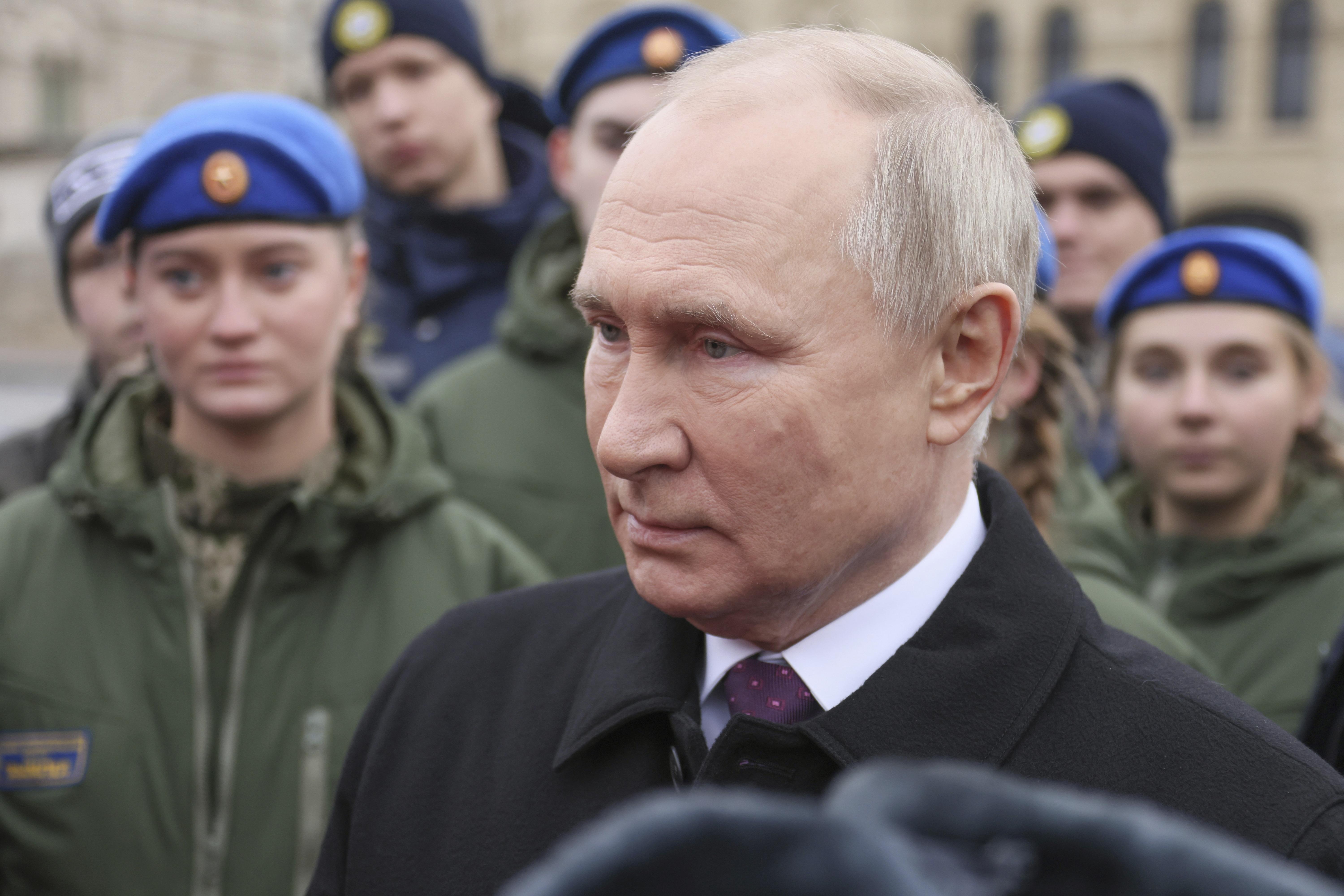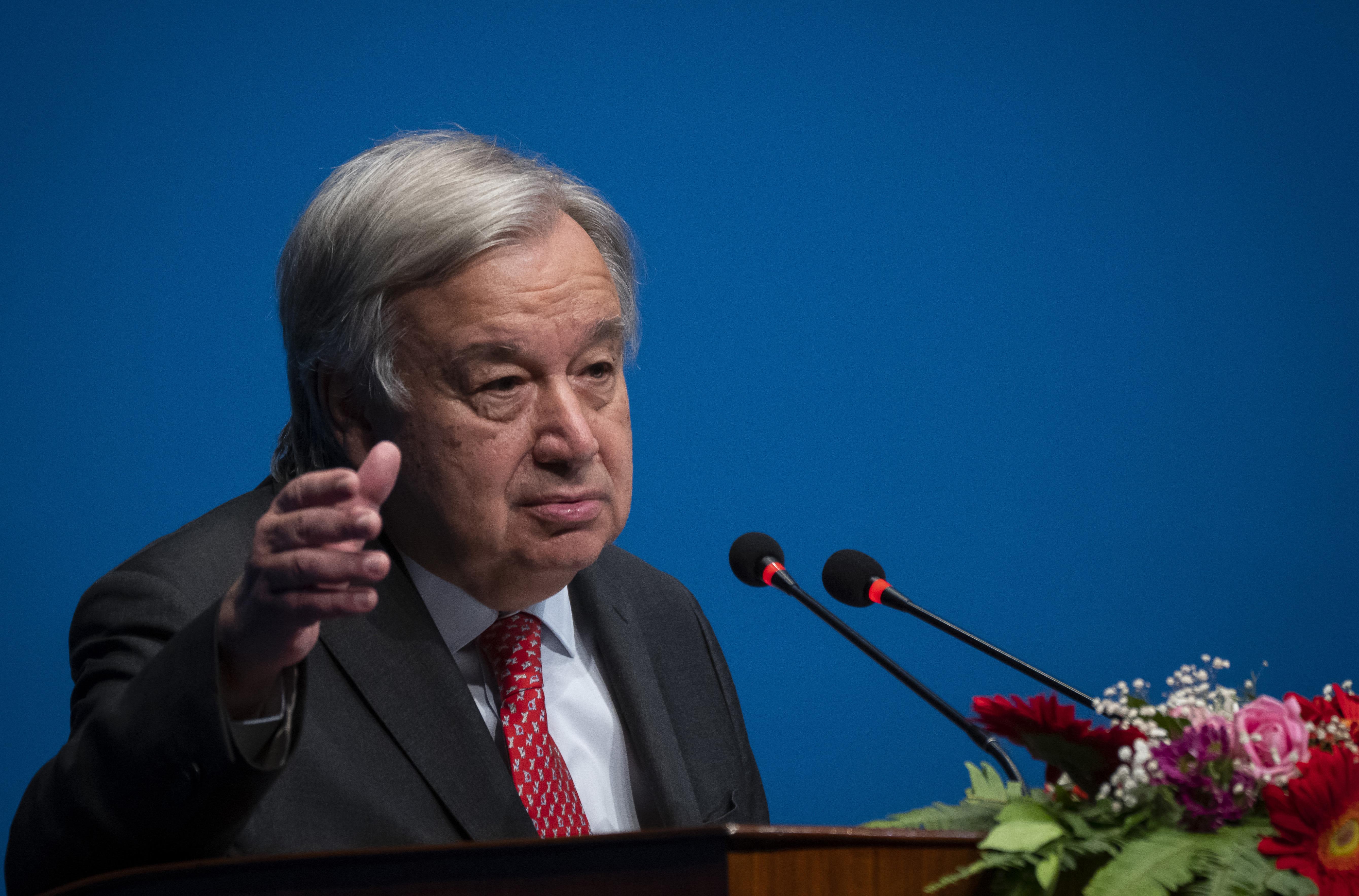 Russian President Vladimir Putin is seen during the National Unity Day in Moscow, Russia, Nov 4, 2023. (PHOTO/AP)
Russian President Vladimir Putin is seen during the National Unity Day in Moscow, Russia, Nov 4, 2023. (PHOTO/AP)
MOSCOW/UNITED NATIONS - Russia has formally withdrawn from the Treaty on Conventional Armed Forces in Europe (CFE) at midnight Tuesday, the Russian Foreign Ministry announced on its website Tuesday.
"As of 00:00 hours on November 7, 2023, the CFE withdrawal procedure for Russia, which was suspended by our country in 2007, has been completed. Thus, the international legal document has finally gone into history for us," it said.
Russia does not currently see the possibility of concluding arms control agreements with NATO countries, it added.
ALSO READ: Putin revokes Russia's ratification of nuclear test ban treaty
Two other agreements related to the CFE had ceased to be valid for Russia -- the Budapest Memorandum of November 3, 1990, which set the maximum levels of conventional weapons and equipment for the six Warsaw Pact countries, and the Flank Agreement of May 31, 1996, which modified the original treaty.
The CFE, originally signed in 1990 by the then NATO members and the then six Warsaw Treaty states, came into force in 1992.
The pact was aimed at establishing a balance between the two military alliances by setting limits on the quantities of weapons and military equipment that all parties were allowed to amass.
 UN Secretary-General António Guterres, addresses the Nepalese Parliament in Kathmandu, Nepal, Oct 31, 2023. (PHOTO / AP)
UN Secretary-General António Guterres, addresses the Nepalese Parliament in Kathmandu, Nepal, Oct 31, 2023. (PHOTO / AP)
On Monday, UN Secretary-General Antonio Guterres deeply regrets Russia's decision to revoke its ratification of the Comprehensive Nuclear-Test-Ban Treaty (CTBT), said his spokesman.
The Russian Foreign Ministry announced on Friday that Russia remains committed to the Comprehensive Nuclear-Test-Ban Treaty and its obligations despite its decision to revoke its ratification
"Since the treaty's adoption, Russia has been a leader in seeking to bring the CTBT into force. It is concerning to see a reversal of this trend," said Stephane Dujarric, the spokesman, in a statement.
The CTBT is critical for international peace and security. It is an essential element of a world free of nuclear weapons, the statement said.
All States, particularly those whose ratification is required for the treaty's entry into force, should ratify the CTBT without delay or preconditions. In the interim, the nuclear-weapon states should jointly reaffirm their testing moratoriums and commit not to take any actions that would defeat the object and purpose of the treaty, said the statement.
ALSO READ: Russia tests new nuclear submarine with Bulava missile
Russian President Vladimir Putin on Thursday signed a law revoking Russia's ratification of the CTBT.
Russia ratified the treaty in 2000, while the United States has not ratified it yet.
The Russian Foreign Ministry announced on Friday that Russia remains committed to the treaty and its obligations despite its decision to revoke its ratification.
However, the ministry warned that if the United States conducts full-scale tests at its Nevada site, as some reports suggest, Russia will have to "act in a mirror manner."
The CTBT, adopted by the United Nations General Assembly in 1996, is a multilateral agreement that bans all nuclear explosion tests conducted for peaceful or military purposes.


